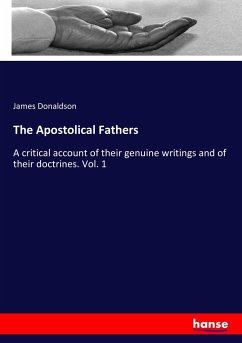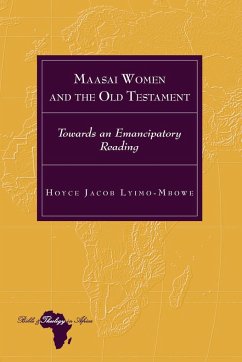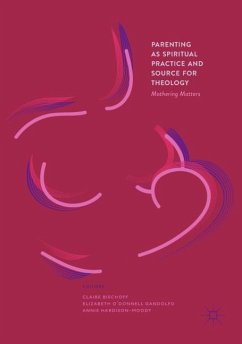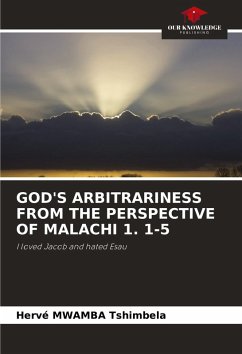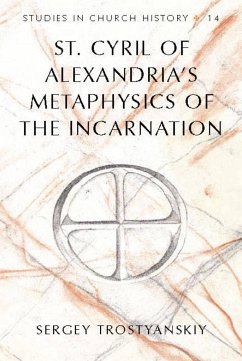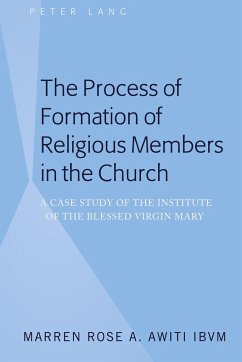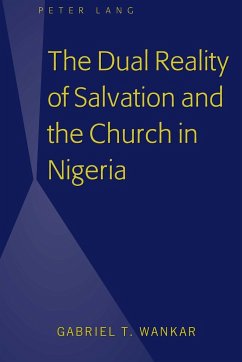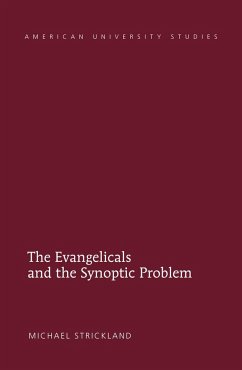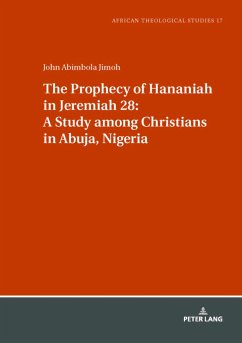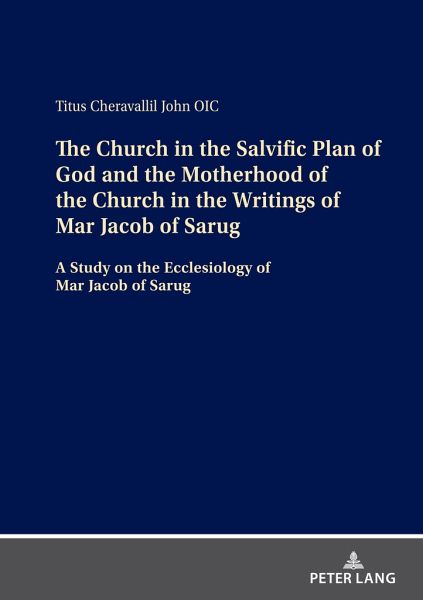
The Church in the Salvific Plan of God and the Motherhood of the Church in the Writings of Mar Jacob of Sarug
A Study on the Ecclesiology of Mar Jacob of Sarug
Versandkostenfrei!
Versandfertig in 6-10 Tagen
89,65 €
inkl. MwSt.

PAYBACK Punkte
0 °P sammeln!
This book deals with the ecclesiological themes in the writings of Mar Jacob of Sarug, a West Syrian Church father, who lived in the sixth century. Mar Jacob of Sarug (ca. 451-521) stands next to Ephrem the Syrian as a poet theologian of the West Syrian Church. His writings, especially the metrical homilies, illustrate his imaginative reflections on Bible passages, demonstrating his theological perceptions. This book deals with the ecclesiological themes in Mar Jacob's writings. The primary sources of this work are the festal homilies of Mar Jacob and his two metrical homilies on the Church, w...
This book deals with the ecclesiological themes in the writings of Mar Jacob of Sarug, a West Syrian Church father, who lived in the sixth century. Mar Jacob of Sarug (ca. 451-521) stands next to Ephrem the Syrian as a poet theologian of the West Syrian Church. His writings, especially the metrical homilies, illustrate his imaginative reflections on Bible passages, demonstrating his theological perceptions. This book deals with the ecclesiological themes in Mar Jacob's writings. The primary sources of this work are the festal homilies of Mar Jacob and his two metrical homilies on the Church, which the author himself has translated.
Mar Jacob narrates his ecclesiological perceptions along with his explanations regarding the salvific acts of Christ. He looks at Christ as the one in whom the symbols find their actualization. The power and the efficacy of the Son is working through the Old Testament types. In the salvific acts, during the earthly journey of the Son, the types of the Old Testament are fully manifested. The Son's journey on the road of humility is symbolically depicted as the betrothal of the Son, the heavenly bridegroom, to His bride, the Church. Mar Jacob perceives the Church's presence in all the progressive moments of revelation, which are fully exhibited in Christ. His fundamental concepts regarding the Church are based on the fact that the Church is an essential part of the revelation of God's salvific plan, which is realized through the Son. He uses the imagery of the Church's motherhood to explain that the Church cannot be rightly considered apart from the divine economy of God, which is divulged through Christ and his work. The Church derives her authority to act from her origin as a work of the divine economy of salvation and exists on earth as a reality that reveals God's saving acts.
Mar Jacob narrates his ecclesiological perceptions along with his explanations regarding the salvific acts of Christ. He looks at Christ as the one in whom the symbols find their actualization. The power and the efficacy of the Son is working through the Old Testament types. In the salvific acts, during the earthly journey of the Son, the types of the Old Testament are fully manifested. The Son's journey on the road of humility is symbolically depicted as the betrothal of the Son, the heavenly bridegroom, to His bride, the Church. Mar Jacob perceives the Church's presence in all the progressive moments of revelation, which are fully exhibited in Christ. His fundamental concepts regarding the Church are based on the fact that the Church is an essential part of the revelation of God's salvific plan, which is realized through the Son. He uses the imagery of the Church's motherhood to explain that the Church cannot be rightly considered apart from the divine economy of God, which is divulged through Christ and his work. The Church derives her authority to act from her origin as a work of the divine economy of salvation and exists on earth as a reality that reveals God's saving acts.





